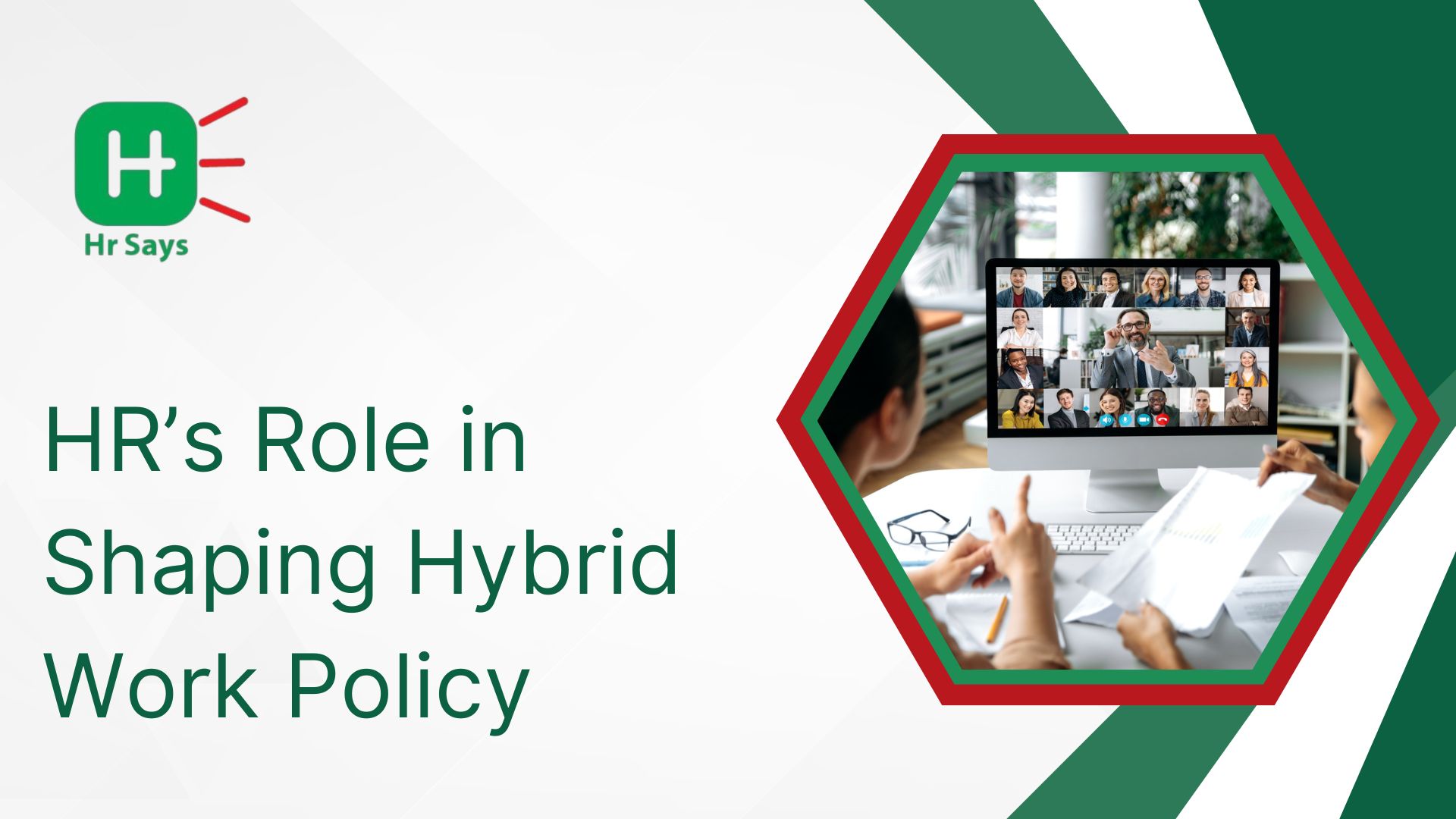Can work happen from anywhere, yet feel connected? It is the question that all the HR leaders are currently attempting to answer. Hybrid work does not have to do with working laptops at home. It is a matter of control, trust, and balance which cannot be created in a casual way.
The Shift That Wasn’t Planned
No one sat down and decided this is how work would look. Offices emptied out. Kitchen tables turned into cubicles. People adapted—some easily, others not so much.
Then, something stuck. People didn’t want to come back fully. They also didn’t want to disappear entirely. Hybrid became the middle ground. Not perfect, but possible.
That’s where HR quietly stepped in. Not just with memos. With strategy.
HR’s Quiet but Crucial Role
It wasn’t about asking, “Where do you want to work?” It was about asking, “How do we keep working well—wherever we are?”
HR had to think deeper:
● What does “being present” mean now?
● Can performance be measured without seeing someone at their desk?
● How do we rebuild trust across time zones and tools?
Behind every Zoom link, a policy had to be shaped. Behind every remote contract, a risk had to be managed.
The Balancing Act
HR had to balance what seemed unbalanced:
● Flexibility vs. Fairness
● Productivity vs. Presence
● Freedom vs. Accountability
Rules couldn’t be rigid. But they couldn’t be vague either.
So, what worked?
● Core collaboration hours instead of 9-to-5.
● Team-driven in-office days, not top-down mandates.
● Outcome-focused goals, not attendance trackers.
● Equal access to tools and opportunities, no matter the zip code.
Not flashy. Just functional. And built to last.
What Still Needs Fixing
Not everything clicks.
● Some managers still equate physical presence with commitment.
● Some employees feel isolated—left out of casual conversations.
● Some policies sound good, but crumble in execution.
Also, not everyone has the same home setup. Not everyone wants the same flexibility. So HR
listens more. And adjusts.
Because culture can’t be copy-pasted. It must be re-learned.
Looking Ahead
Hybrid isn’t just a phase. It’s an evolving system. And HR is the system’s architect—quiet, often
invisible, but necessary.
The policy isn’t the final word. It’s the starting point. People will shape it. HR will guide it.
Conclusion
There’s no one-size-fits-all hybrid blueprint. Only trial, adjustment, and alignment. And in that
space between structure and freedom, HR is holding the line.
Not with slogans. But with strategy.
Because when done right, hybrid isn’t a compromise. It’s clarity in motion.

 Hybrid work isn’t just a trend—it’s the new operating model. HR isn’t just responding to it. It’s quietly writing the rulebook, blending structure with flexibility, and rewriting how work works.
Hybrid work isn’t just a trend—it’s the new operating model. HR isn’t just responding to it. It’s quietly writing the rulebook, blending structure with flexibility, and rewriting how work works.








.jpeg)
.jpeg)

.jpeg)





.jpeg)



.jpeg)

.jpeg)



